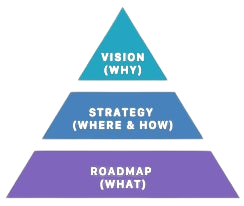Product manager: Product management is one of the most in-demand careers in the tech industry today. Product Managers (PMs) play a crucial role in shaping products, working at the intersection of business, technology, and user experience. If you’re interested in becoming a product manager, this guide will walk you through the essential steps to enter and thrive in this exciting career.
What Does a Product Manager Do?
A Product Manager is responsible for defining the vision, strategy, and roadmap for a product. They work closely with engineering, design, marketing, and sales teams to ensure a product meets business goals and customer needs. Their key responsibilities include:

- Conducting market research to identify customer needs.
- Defining product requirements and specifications.
- Prioritizing features and managing the product backlog.
- Collaborating with cross-functional teams to develop and launch products.
- Analyzing data to improve product performance.
- Managing stakeholder communication.
Skills Required to Become a Product Manager
To succeed as a PM, you’ll need a mix of technical, analytical, and soft skills. Here are some of the key competencies:
Hard Skills:
- Market Research & Data Analysis: Understanding customer needs and market trends.
- Product Development: Familiarity with Agile, Scrum, and software development lifecycles.
- UI/UX Design Basics: Ability to work with designers to create user-friendly experiences.
- Business & Finance Knowledge: Understanding revenue models, pricing strategies, and KPIs.
Soft Skills:
- Communication: Ability to clearly articulate ideas to different teams.
- Problem-Solving: Identifying challenges and finding innovative solutions.
- Leadership: Motivating and aligning teams towards a common goal.
- Negotiation & Stakeholder Management: Balancing different perspectives to make informed decisions.

Education & Certifications
While there is no single path to becoming a Product Manager, here are some common educational routes:
- Bachelor’s Degree: A degree in business, computer science, engineering, or marketing can be helpful.
- MBA: Many PMs have an MBA, but it’s not mandatory.

- Certifications:
How to Gain Product Management Experience
If you don’t have direct experience, here’s how you can build relevant skills:
- Work on Side Projects: Develop an app, website, or service to showcase your skills.
- Join a Startup or Small Business: Gain hands-on experience in product management by working with a growing team.
- Participate in Hackathons: Collaborate with developers and designers to build and pitch products.
- Internships: Many companies offer Product Management internships that provide real-world exposure.
- Take Online Courses: Platforms like Coursera, Udemy, and LinkedIn Learning offer valuable PM courses.
How to Land Your First Product Manager Job
Here are some practical steps to break into the field:
- Optimize Your Resume & LinkedIn
- Highlight transferable skills from your previous roles.
- Showcase projects where you’ve demonstrated product thinking.
- Build a Portfolio
- Document case studies of products you’ve worked on.
- Write blog posts or create videos discussing product strategies.
- Network & Connect
- Attend PM meetups and conferences.
- Reach out to industry professionals on LinkedIn.
- Join online communities like Mind the Product, PMHQ, and Product School.
- Prepare for Interviews
- Common PM interview questions include:
- “How would you improve [a popular product]?”
- “Tell me about a time you resolved a conflict between teams.”
- “Walk me through how you would launch a new feature.”
- Use frameworks like CIRCLES (Customer, Insights, Revenue, Competition, Execution, etc.) for structured responses.
- Common PM interview questions include:
Conclusion
Becoming a Product Manager requires a blend of skills, experience, and strategic thinking. While there’s no single path to entering the field, following the steps outlined in this guide will help you position yourself as a strong candidate. Whether you’re transitioning from another role or starting fresh, continuous learning and networking will be key to your success.
Are you ready to start your product management journey? Let us know in the comments!
Read also | How to make a Website using AI Tools: A step-by-step guide
Read also | 5 Emerging Technologies Set to Transform the World in 2025









